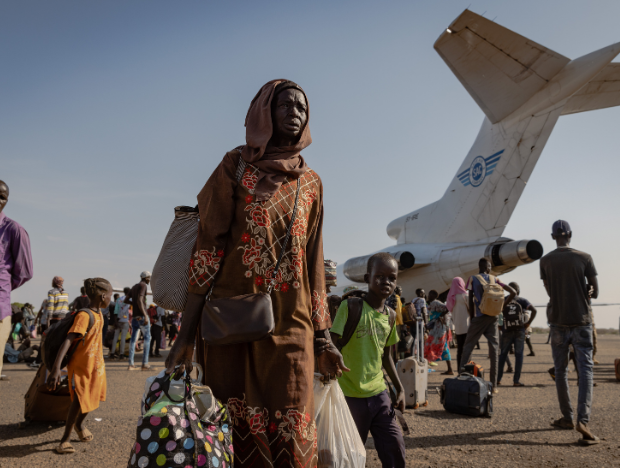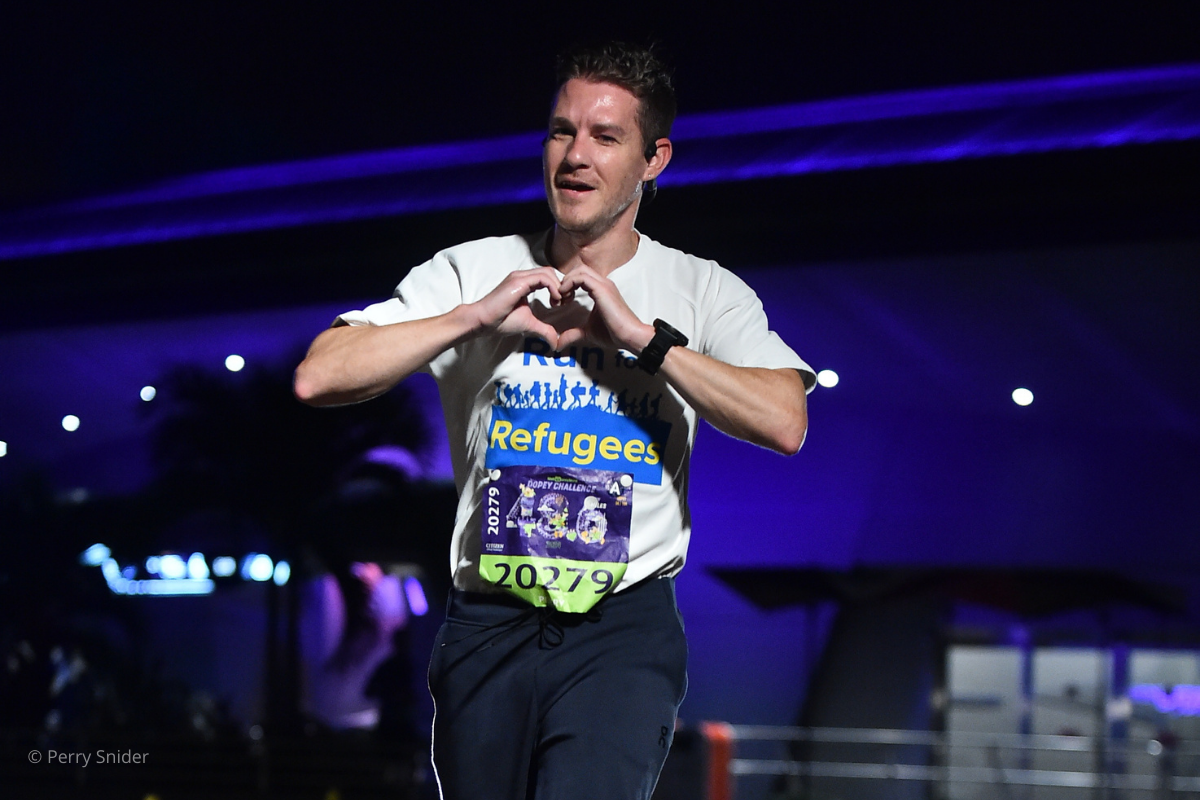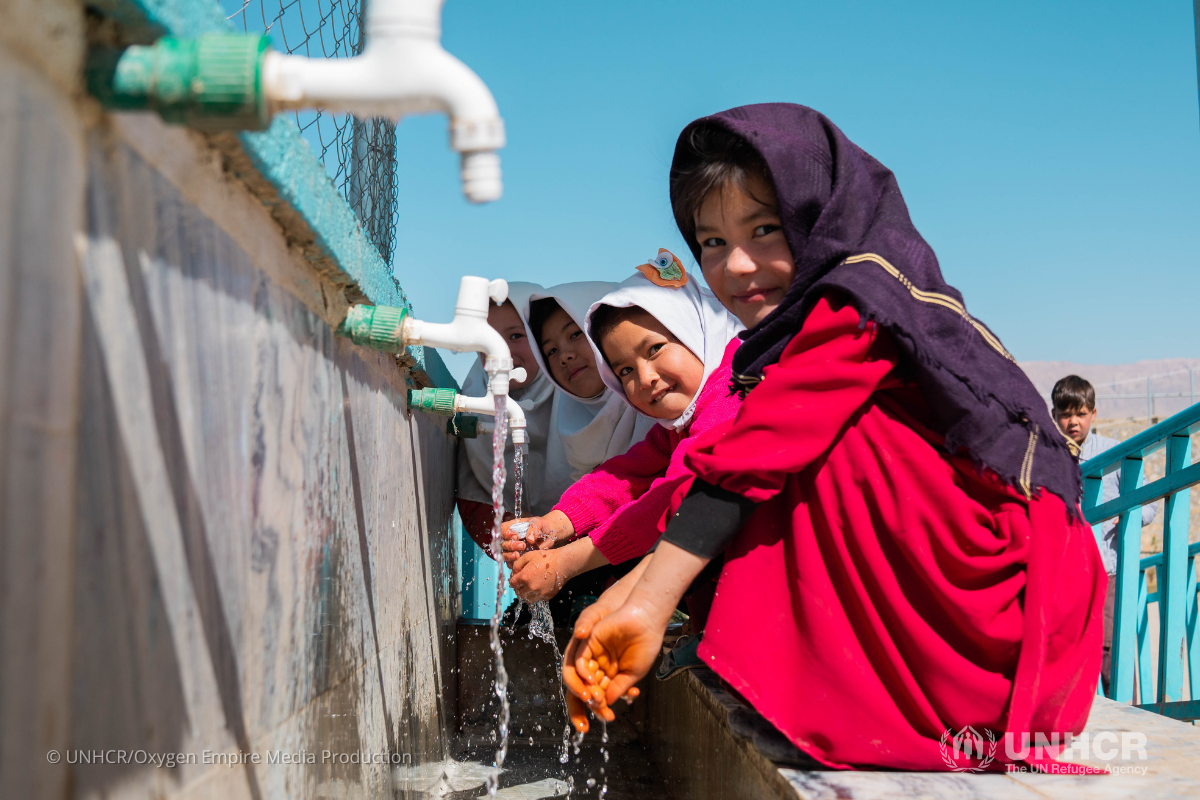In Uganda, two refugees from the Democratic Republic of the Congo are inspiring hope and creating change
“Imagine having a standard life, almost everything you need, and suddenly the war comes, and persecution and insecurity knocks on your door,” shares Paulinho Muzaliwa, founder of UNIDOS, a refugee-led organization using regenerative agriculture practices to help empower refugees at the Nakivale refugee settlement in Uganda.
Muzaliwa was forced to flee his home in the Democratic Republic of the Congo in 2017 when armed militia groups began fighting in the North Kivu region. He found safety at the Nakivale settlement in Uganda. Ambitious and inspired to use his experience to help himself and others in his new community, Muzaliwa sought opportunities to channel his entrepreneurial energy. After completing an online course in regenerative agriculture practices through the Permaculture Education Institute based in Australia, Muzaliwa founded UNIDOS and began teaching regenerative agriculture and social entrepreneur skills to other refugees living in the Nakivale settlement.
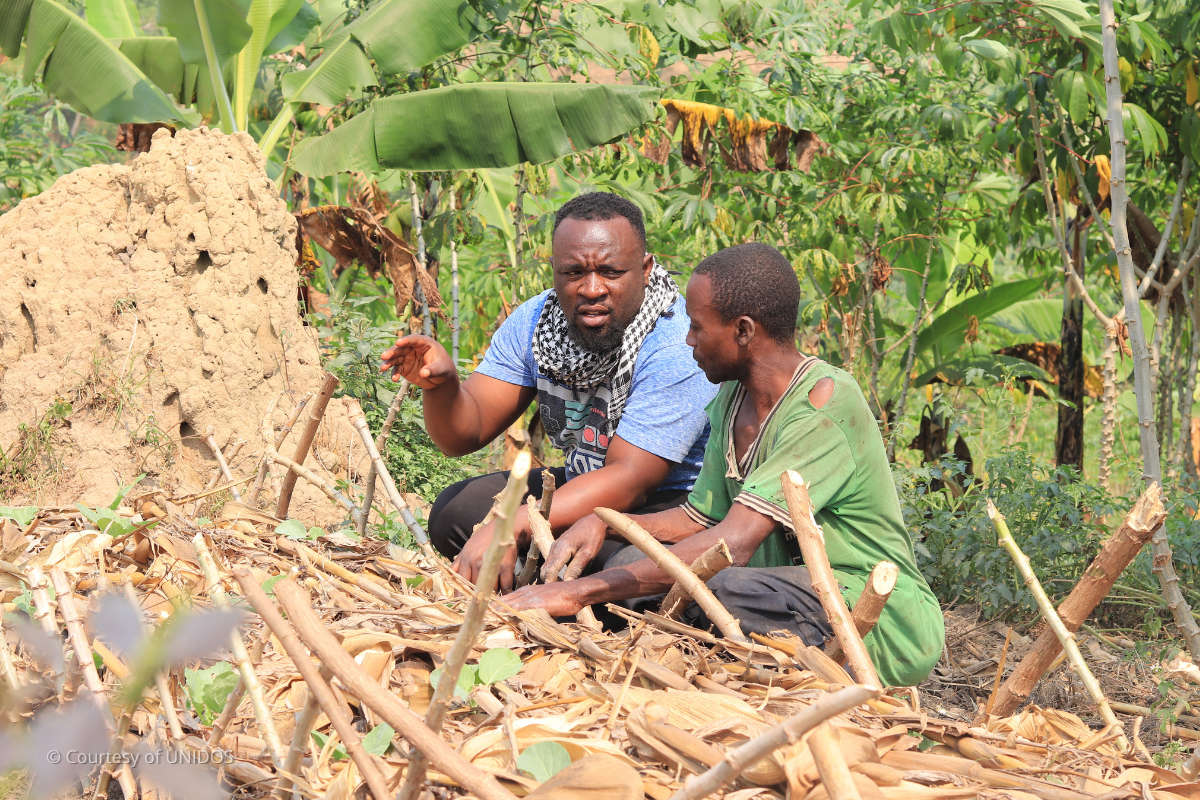
“I wanted to build a space that would enable me to let go of what I had [experienced] in my home country and connect with other young refugees,” says Muzaliwa.
Muzaliwa launched UNIDOS amid COVID-19 — and the ability to deliver sustainable food sources at the settlement during the pandemic became lifesaving work.
“COVID-19 was an unforgettable time, and most refugees faced a hunger crisis due to diminishing humanitarian aid,” reflects Muzaliwa. “Carrots, lettuce and cabbage were the first crops we grew, and for us, it was a celebration because none of us were farmers in our home countries.”
In 2023, with the support of UNHCR’s Refugee-led Innovation Fund, UNIDOS expanded the scope of its work and trained more than 1000 individuals at Nakivale settlement and the host community in regenerative agriculture techniques.
From humble beginnings, UNIDOS is now empowering thousands of refugees and fundamentally changing the environmental landscape at Nakivale.
“We support and empower youth and especially women refugees, to unleash their full potential and fill the inequality gap while turning problems into opportunities,” Muzaliwa shares.
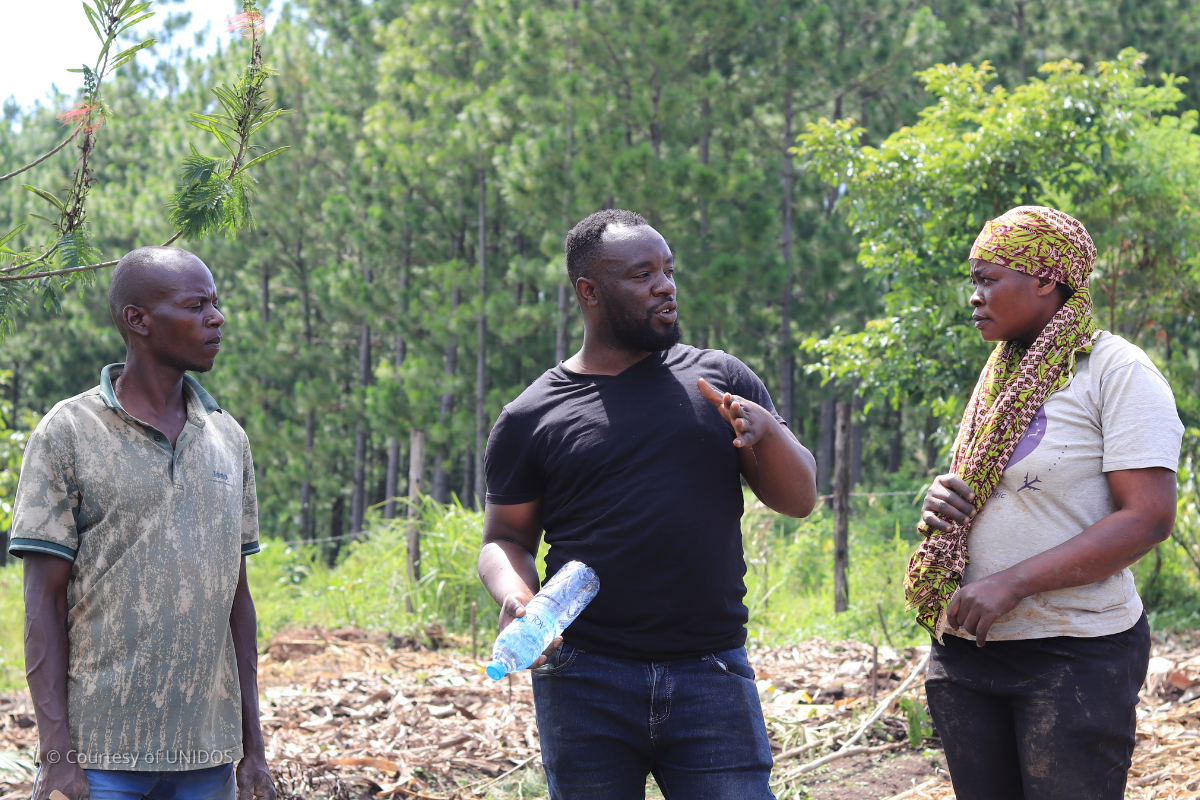
UNIDOS has helped train nearly 700 women with entrepreneurial skills and is helping them play active roles in greening the settlement by planting moringa and other fruit trees while building small businesses. “They use the moringa tree leaves to make organic and liquid soaps, enabling them to generate sustainable incomes,” says Muzaliwa.
Muzaliwa’s vision for UNIDOS is grand, and he foresees a future where refugees will play a fundamental role in an agricultural revolution.
“We want to co-create a new renaissance where regenerative agriculture will be the foundation,” says Muzaliwa, “where refugees will be able to grow an abundance of organic food not only for consumption but also for business purposes.”
Like Muzaliwa, Ntakamaze Nziyonvira is a refugee from the Democratic Republic of the Congo who uses his refugee journey to fuel his ambitious work in helping refugees access education. As a child, Nziyonvira encountered numerous challenges accessing quality education after being forced to flee his home in 1998.
In 2003, with help from UNHCR, the UN Refugee Agency, Nziyonvira secured a scholarship to attend secondary school and two years later, while still students themselves, Nziyonvira, along with some of his friends at the Kyangwali refugee settlement in Uganda, founded CIYOTA.
“Becoming a refugee at the age of 11 always compelled me to help displaced children and youth in Uganda's refugee settlements to access quality education,” reflects Nziyonvira. Since its founding nearly 20 years ago, the scope of CIYOTA’s work has expanded, but the mission of service to other refugees remains at the heart of the work.
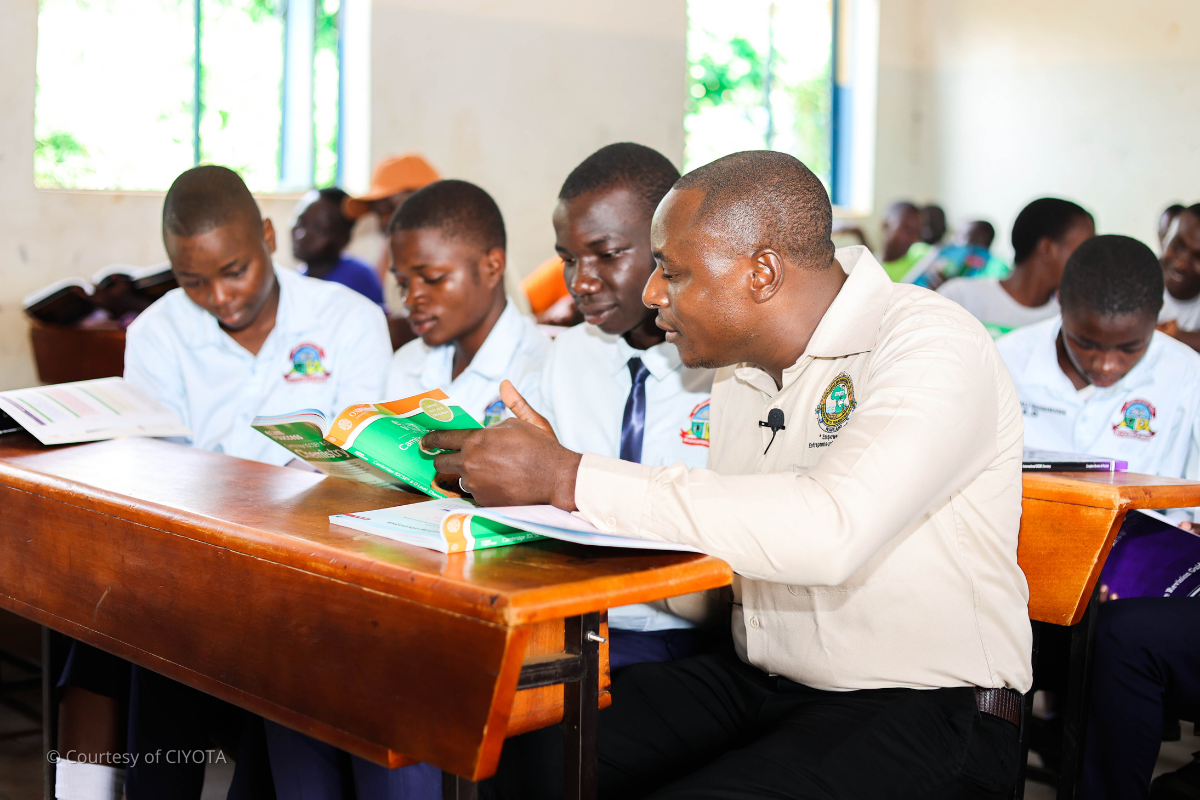
“CIYOTA’s mission is to transform Africa by providing access to quality education for conflict affected children, empowering socially responsible leaders and entrepreneurs to unite communities and create sustainable peace, love and prosperity,” says Nziyonvira.
After receiving help from UNHCR to attend secondary school, Nziyonvira earned a scholarship through the Mastercard Foundation Scholars Program (MCFS) to study mechanical engineering at the University of Rochester in New York. He graduated in 2017, but after working in engineering for one year, Nziyonvira returned to Uganda to lead CIYOTA as Executive Director. The decision was difficult, but he says he feels “indebted to other refugee children” because of his opportunities and wanted to “come back to Uganda to give back to the refugee community.”
CIYOTA has supported the education journeys of more than 5,000 students, including primary and secondary school learners and university students. In addition to expanding educational access for refugees, CIYOTA focuses on developing leadership, entrepreneurial and life skills through psychosocial support, career guidance and extracurricular student clubs.
“Our strategy is to provide quality education — from pre-primary, primary through secondary education to university — for displaced children and youth that goes beyond academic achievement,” Nziyonvira explains.
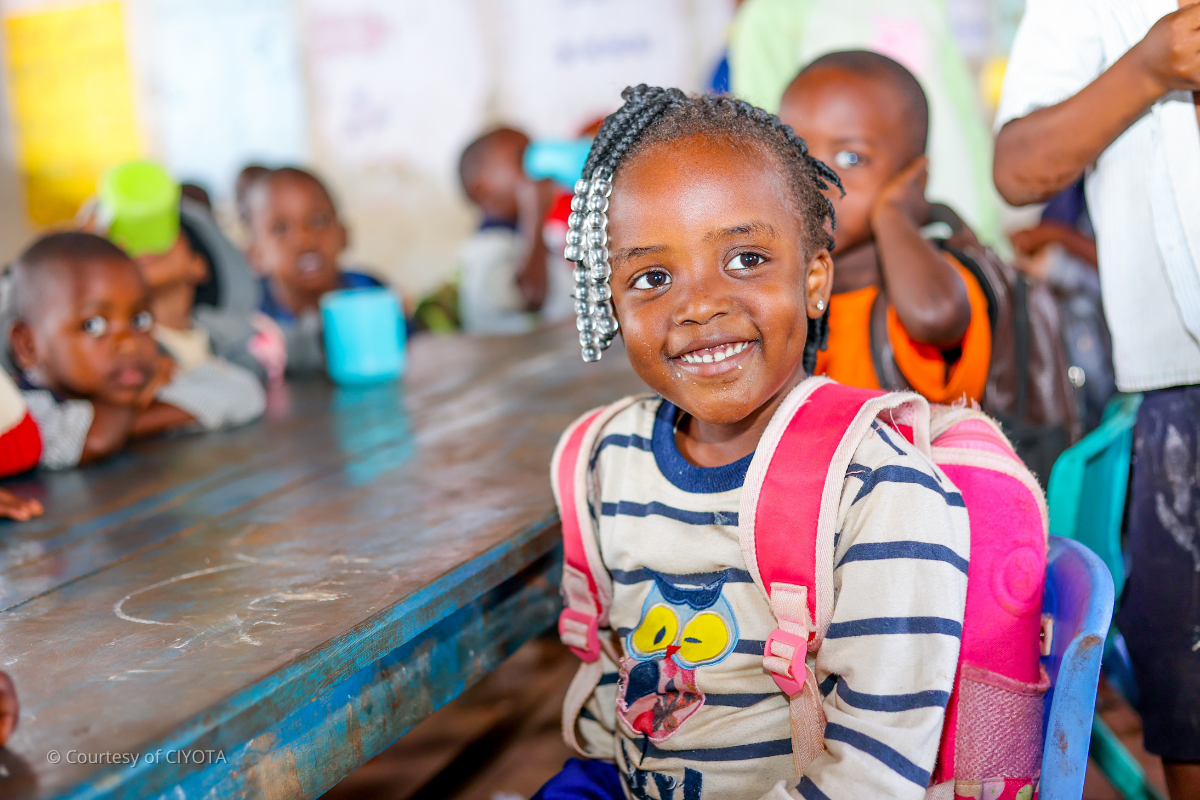
Nziyonvira is enthusiastic about the future of CIYOTA and finds a great deal of happiness watching his former students embrace the mission of CIYOTA and help empower other refugees.
“My joy comes from seeing the students I supported coming back from high school and college to support others,” says Nziyonvira. “Six other refugee schools were started by CIYOTA alumni, and all together, they are supporting over 2,000 learners.”
Paulinho Muzaliwa and Ntakamaze Nziyonvira recently received the Gene Dewey Refugee Award for their visionary leadership and extraordinary dedication to helping people forcibly displaced from their homes.
The Gene Dewey Refugee Award, named in recognition of Arthur “Gene” Dewey, USA for UNHCR co-founder and former UN Deputy High Commissioner for Refugees, recognizes individuals who demonstrate visionary leadership and extraordinary dedication to helping people forcibly displaced.
